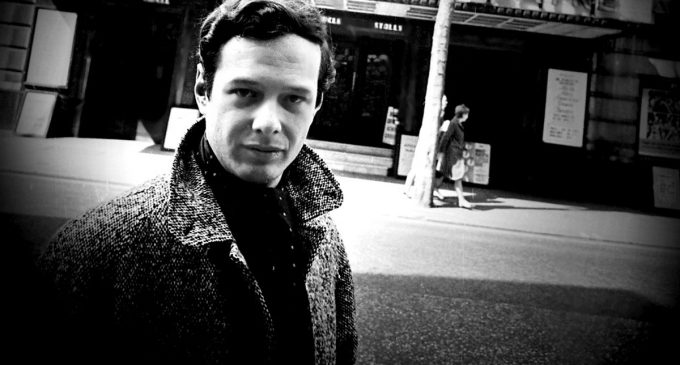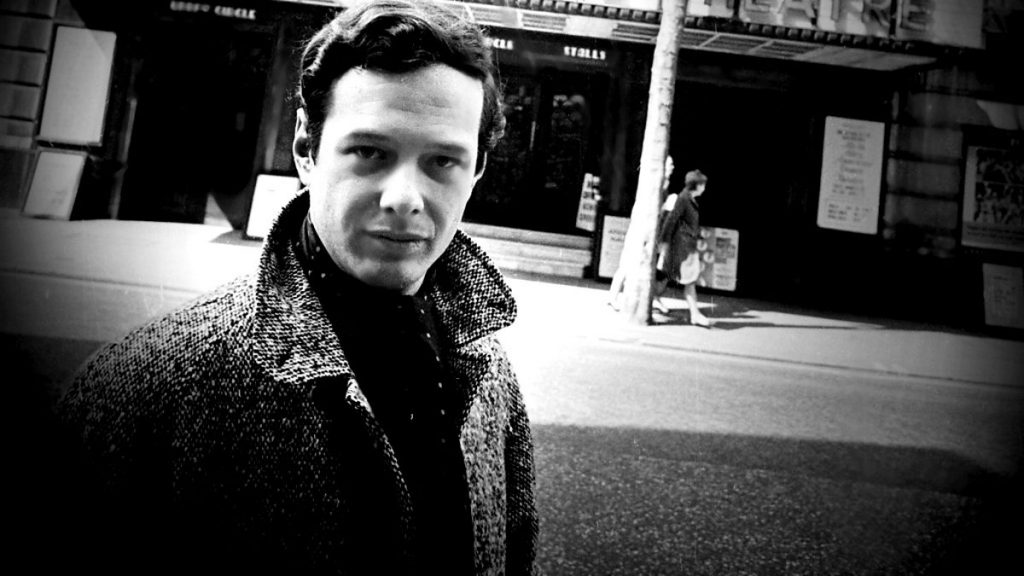EPSTEIN AND THE ‘LOVE ME DO’ MOUNTAIN

Brian Epstein and the ‘Love Me Do’ Mountain
by Bill Harry
When ‘Love Me Do’ was released, there were rumours that Brian Epstein had bought boxes of copies. I neither believed nor disbelieved at the time; the Liverpool scene was rife with gossip, much of it to be dismissed.
As with all rumours, they became exaggerated as they passed from one person to another. At one moment it seemed as if he had bought a few boxes of records to cater to the anticipated demand locally, which was a sensible thing to do, on the other hand there were rumours of a roomful of records. It got out of all proportion when someone suggested he might have bought up to 1,000 records. Years later, when the myth appeared in Peter Brown’s book, it had grown to 10,000:
“He (Epstein) unblinkingly ordered 10,000 copies of ‘Love Me Do’ for NEMS, a magic number he thought would automatically land it a place on the British charts.”
Frankly, even if that sky-high figure were sold in his Whitechapel and Great Charlotte Street shops, the record could not have entered the Top 20 charts from sales in a single city.
The chart positions were decided on a ‘weighing basis’, which excluded an uneven sales barometer from one outlet. Adamantly denying that he had bought the disc in bulk to force it into the charts, Brian told writer Ray Coleman, “I did no such thing, nor ever have. The Beatles progressed and succeeded on natural impetus without benefit of stunt or backdoor tricks.”
The official British chart was run by the trade magazine Record Retailer, although the music papers ran their individual charts, the most respected one being run by the New Musical Express. Both journals compiled their charts by having a number of record shops throughout the country that they contacted for sales positions. They varied the particular shops each week to prevent people going round the same shops to buy up discs in order to hype their way into the charts. They would phone a certain number of shops and ask for the sales positions of their records. They would then compile their charts from that information.
Epstein would have been aware of how the charts were compiled. For him to buy 10,000 records would have been a futile gesture. ‘Love Me Do’ would have been No. 1 in both NEMS shops whether they sold 50 or 5,000.
If NEMS had been a chart selection shop in the weeks the charts were compiled, having ‘Love Me Do’ at No. 1 wouldn’t have had a major effect on the final national figure. The record would have had to make an impact in shops scattered throughout Britain to achieve a placing.
A few years later on, there were people who did obtain lists of chart shops for the music papers and not the official one compiled by Music Week (formerly Record Retailer) and sent representatives travelling around the country buying up records – but only three or four in each shop so as not to make what they were doing obvious.
Epstein didn’t do this, so buying up 10,000 copies would have been a useless exercise.
I think, basically, that the fanciful tale of Brian buying such a huge quantity stemmed from Joe Flannery’s account to Philip Norman. Since the publication of ‘Shout!’ many writers have taken accounts of this rumour from the book and treated them as fact.
In ‘The Beatles: An Oral History’ by David Pritchard and Alan Lysaght, Philip Norman once again relates the tale: “Joe Flannery was a close assistant to Brian Epstein…One day he walked into a storeroom at the back of the NEMS store in Liverpool and saw all these boxes of records. Brian had this little melody he used to sing when he went into that room. It went: ‘Here we go gathering dust in May.’ Those were the unsold copies of ‘Love Me Do’ sitting in his storeroom.”
I don’t accept this story. However, if it were to be believed, then how would Joe know exactly how many records were in the boxes and how many records had been sold in the stores? Where would he have got the figure of 10,000 from? As I’ve mentioned, when the story first began to circulate around Liverpool it was a rumour that Brian had bought 1,000 copies of the record – and over a period of time it reached Flannery’s 10,000.
Epstein said the story was untrue. I tend to believe him. As a record store manager who knew what he was doing, he would have been aware that buying such an amount for his two shops wouldn’t have had any great impact on the charts.
In the 5 December 1964 issue of Melody Maker, they described how their Top 50 charts were assembled: “The planning of the Pop Fifty is a giant task every week. This week, with the release last Friday of the new Beatles single, a special plan was implemented to ensure that Britain’s most authoritative hit parade was assessed with the greatest speed and accuracy. The chart bureau was augmented.
“Record shop managers throughout Britain co-operated magnificently in rushing their returns to the MM, express post
“It started at 6.50am and ended when the results were announced at 12.10pm.”
As anyone can see, the way the charts were compiled this way would make it impossible to affect the chart by the entry of a single, or even two, shops.
I’m surprised at Peter Brown’s brief mention of it in his book. Brian actually hired his friend Peter, who had run the record department at Lewis’s store, to take over at the NEMS Great Charlotte Street branch when he moved to Whitechapel. As a record store manager, Peter would have known too well that ordering a vast amount of records at two stores in one city would not affect the charts which were compiled in London. If he really believed the story, he would have been able to provide more credible detail.
Further proof comes from Brian’s own brother Clive, who was in charge of the non-record area of the Great Charlotte Street NEMS store. He said, “My father was very involved in the business then and neither he nor myself at any time were going to risk these thousands of records which have been suggested as part of the stock or part of the hype. Invoices and statements went through the office and every cheque was either signed by my father or myself. Something like that would obviously have been noticed.”




There are no comments at the moment, do you want to add one?
Write a comment